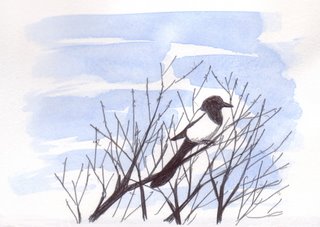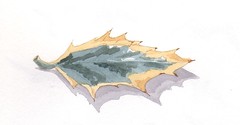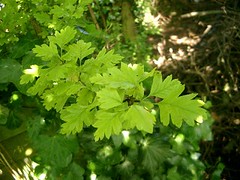 and it seems to send the kids at school mad too, what we teachers call (somewhat unimaginatively) 'windy day syndrome'.
and it seems to send the kids at school mad too, what we teachers call (somewhat unimaginatively) 'windy day syndrome'.The advantage of working at a school on top of a hill is that you get a view, and as views go, ours ain't bad. This biro landscape is the view looking west-ish, towards Pudsey, of the bear fame. I'm not religious, sorry, but the church on the horizon is a frequent comfort.
There's the odd addition now and then but magpies, pied wagtails, crows and black-headed gulls make up my usual bird list from my window at work. Nathan (at 3 y.o.) can already identify these at home, however, he does struggle a bit with magpies and pied wagtails. He gets round this by calling them 'wagpies', which I like far better than the other confusion species terms I've heard, such as shagorant, willowchiff and commic tern.



